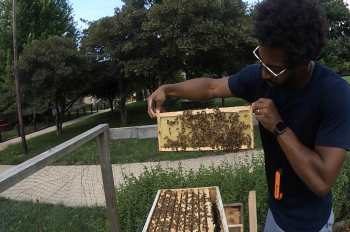New research project to examine microaggressions experienced by people with MS in the workplace
Eun-Jeong Lee, associate professor of psychology and director of the rehabilitation and mental health counseling division in the Department of Psychology, and Nicole Ditchman, assistant professor of psychology, received a grant from the National Multiple Sclerosis Society for an exploratory study of microaggressions experienced by people with Multiple Sclerosis (MS) in the workplace.
Unemployment remains a significant problem for people living with MS. Although the vast majority of people with MS are working at the time of diagnosis, up to 80% are unemployed within ten years. Research has shown that adults with MS are more likely to perceive discrimination regarding their retention in the workplace. The choice to remain in or to leave the workforce is often made by the person with MS; however, workplace climate and culture likely have a significant impact on this decision. Discrimination by employers has been identified as a barrier to continued employment for people with MS, which is particularly concerning given the documented benefits associated with maintaining employment for people with MS, as well as estimates indicating that the majority of people with MS express the desire and ability to return to work.
Microaggressions are subtle verbal, nonverbal, or environmental slights—intentional or unintentional—that convey disparaging messages to people based upon their membership in a socially marginalized group. The negative impact of microaggressions has been studied toward groups related to sexual orientation, gender, and race/ethnicity, as well as toward disability groups, including mental illness and physical disability; however, the influence of microaggression in the workplace among people with MS is less clear.
Using a community based participatory research (CBPR) model, Lee and Ditchman will investigate the experience of microaggressions in the workplace and how this experience affects the physical and psychological well-being, work stability, and retention of people with MS. Findings from this study will be used in the development of an intervention study, designed with the input of members of the MS community, to examine more closely the impact of microaggressions on the work life and well-being of people with MS.




